The dominant renaissance style of
Château d' Amboise in
the Loire Valley, France, is there for all to see well before you even enter the town as its position high above the Loire river makes it obvious from quite a distance as you drive along the approach roads on the river bank.
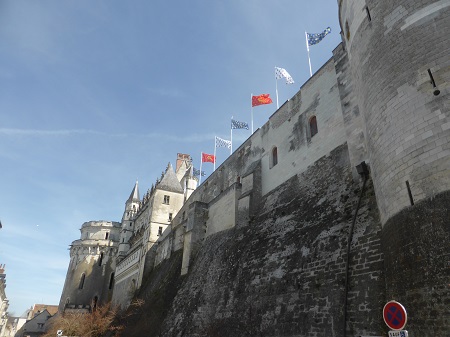
The chateau was built on the foundations of an old fortress, its position perched high on a promontory over looking the
Loire,
offering a solid defence against any intruders. The chateau was seized by Charles VII in the mid 1400’s after its
owner, Louise
d’Amboise was involved in a plot against the monarchy. He was later to be pardoned but the chateau remained in the hands of the king.
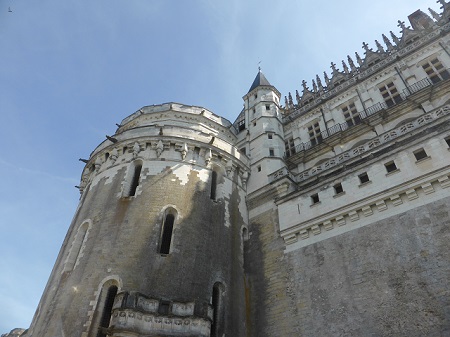
In 1429 Joan of Arc passed through the town on her way to defeat the English at Orleans.
In the late fifteenth century, following his marriage to Anne of Brittany at Langeais, Charles VIII decided to turn the old castle of his childhood days into a luxurious palace but not long after the work was completed, Charles met his death here – not in the defence of his kingdom – but by banging his head on one of
the many low doorways!
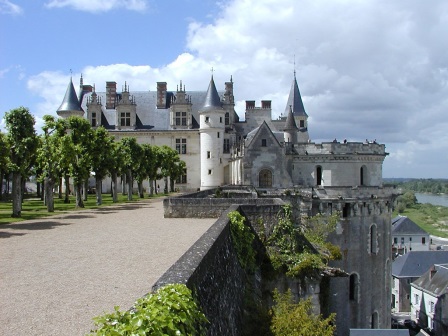
This is an interesting chateau, made more so by the excellent views over the town and the
Loire
River.
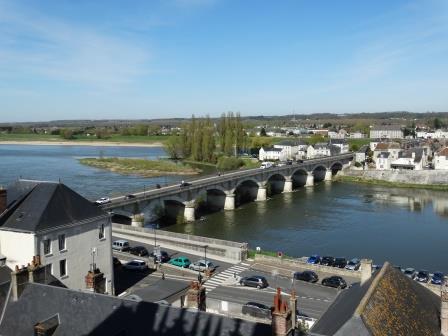
The history of the château was marked by three famous ladies, all of whom has a different room named after them:
Joan of Arc, Anne of Brittany and Agnes Sorel, Charles VII's favourite mistress.
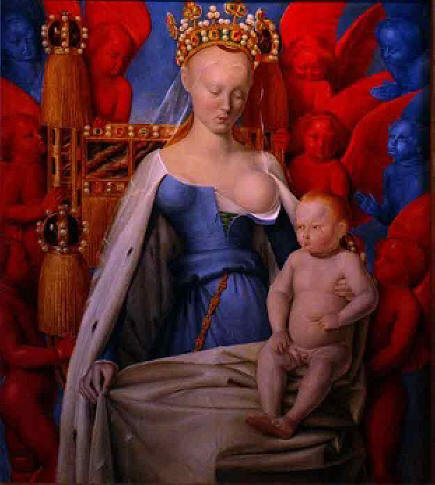
The history of Agnès Sorel
would make a good plot for a soap opera. She was the first mistress of a French king to be officially recognized. She was, it is said, an extremely beautiful woman, as well as very intelligent. She wielded considerable influence over the king and his policies, which earned her a number of powerful enemies at court. She gave birth to three daughters - while pregnant with her fourth child, she joined Charles VII on a campaign against the English in 1450 in Normandy. Shortly afterwards, she fell ill and died (aged 28}. A lot of people believed she had been poisoned because of her sudden death and because of her numerous enemies. In 2005 French forensic scientist Philippe Charlier examined her remains and determined that the cause of death was mercury poisoning, but offered no opinion about whether she was murdered.
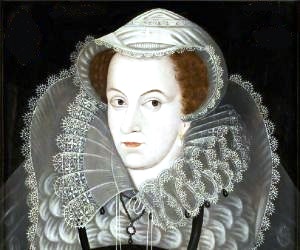
During the 15th and 16th centuries it became a favourite of the French kings as a place to house their wives and children while they sought the company of their mistresses elsewhere. King Henry II and his wife, Catherine de Medici lived here along with Mary Stuart the child queen of
Scotland, who had been promised to the future king Francois II. These were to be the glory years at the chateau prior to its decline and loss of favour with the Royals.
At the beginning of the 17th century, the chateau was all but abandoned when the property passed into the hands of the brother of the King Louis XIII. After his death it returned to the Crown and was turned into a state prison. It then suffered at the hands of the Revolutionaries and Emperor Napoleon.
Its restoration inside and out was begun by King Louis-Philippe during his reign but with his abdication in 1848, the château was confiscated by the government. There was a setback with damage during the second world war but restoration continued and in 1974 the Saint-Louis Foundation took over its administration and continued its restoration programme.
.JPG)
.JPG)
.JPG)
.JPG)
Inside the chateau is sparsely furnished and like the outside, which is only about a fifth of its original size, as you pass through you have to use your imagination to conjure up visions of the royal court in residence.
.JPG)
A new tour takes you through the underground passages and towers of the chateau. The chateau's spiral passageway allowed both men and their horses to make the ascent/descent to the chateau.
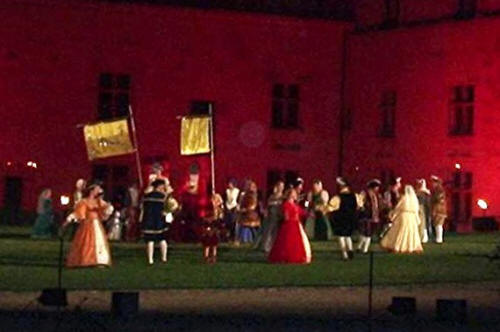
During peak tourist season the chateau puts on a spectacular sound and light show with hundreds (yes hundreds) of local volunteers bringing their history to life in all its pageantry and splendour entitled 'At the court of Francois I' - you might not comprehend all that is going on but you’ll certainly enjoy the spectacle!
The show is about the history of the chateau
as well as daily life and festivities at Amboise.
It is quite a polished spectacle beginning
10-10:30 PM and lasting 1-1/2 hours (may seem a little
longer)No need for advanced booking.
Note: As the show is outside it can be
cancelled because of the weather.
www.renaissance-amboise.com/
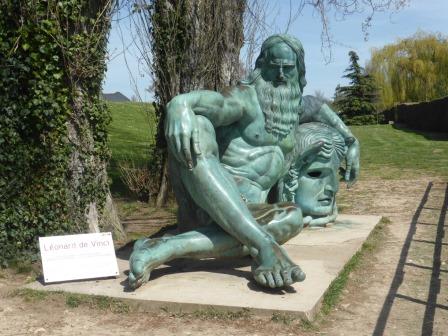
Francois I spent his childhood at the chateau and
when he succeeded to the throne, he lavished much of his social skills on
Chateau d'Amboise. He held frequent balls, feasts, tournaments and
it was he who in 1516 invited Leonardo
da Vinci to stay at the delightful 'Close-Luce', nearby with the promise of a pension, with the only requirement being that he devote some of his time to conversation and companionship.
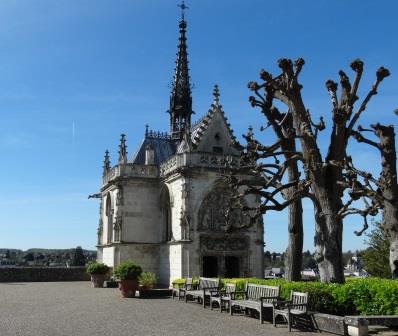
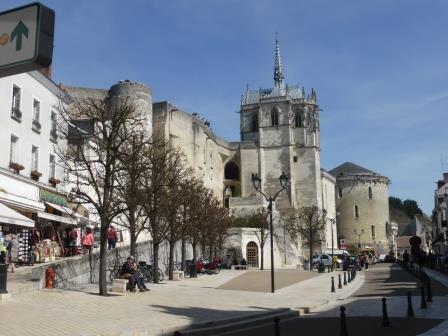
It is said that there is a secret tunnel from the chateau to the
Manoir du Clos -Luce. Leonardo's remains now lie within
the Chapel of Saint-Hubert within the grounds of the chateau.
Unguided
Visits
You can explore the chateau and its
gardens at your own pace with the help of a leaflet in :
English, French, German, Dutch, Italian, Spanish, Portuguese,
Japanese, Polish, Russian, Hungarian, Czech,
Korean, Chinese
and Romanian.
Adults (individuals)
12.80
€
Students
11.00 €
Children (from 7 to 14 years old) 8.00 €
Free under 7
Opening times 9.00am -
7.00pm